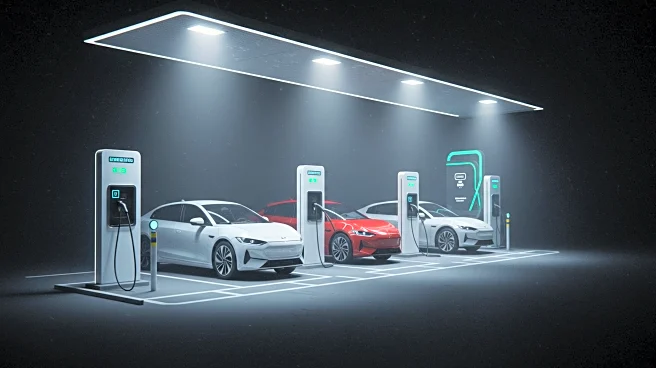What's Happening?
Electric vehicle manufacturers such as Rivian and Lucid are grappling with the implications of recent economic policies, including tariffs and the end of federal tax credits. The One Big Beautiful Bill Act (OBBBA) has eliminated certain tax credits for EV buyers, impacting the zero-emissions regulatory credit market. Additionally, a proposed 100% import tariff on semiconductor chips poses further challenges, as these components are crucial for modern vehicles. Automakers are exploring domestic production options to qualify for exemptions, but uncertainty remains due to potential policy changes.
Why It's Important?
The changes in tariffs and tax credits could significantly affect the profitability and production strategies of electric vehicle manufacturers. Companies like Rivian and Lucid may face increased costs and supply chain disruptions, potentially impacting their ability to compete in the market. The semiconductor tariff, in particular, could exacerbate existing supply chain issues, affecting production timelines and costs. These developments may influence the broader automotive industry, including legacy automakers like Ford and GM, as they navigate these economic challenges.
What's Next?
Automakers are likely to seek exemptions from the semiconductor tariff by increasing domestic production. The Trump administration's policy changes could lead to strategic shifts in manufacturing and supply chain management. Companies may also lobby for policy adjustments to mitigate the impact of these economic measures. The industry will closely monitor the administration's decisions and adapt their strategies accordingly to maintain competitiveness and profitability.









